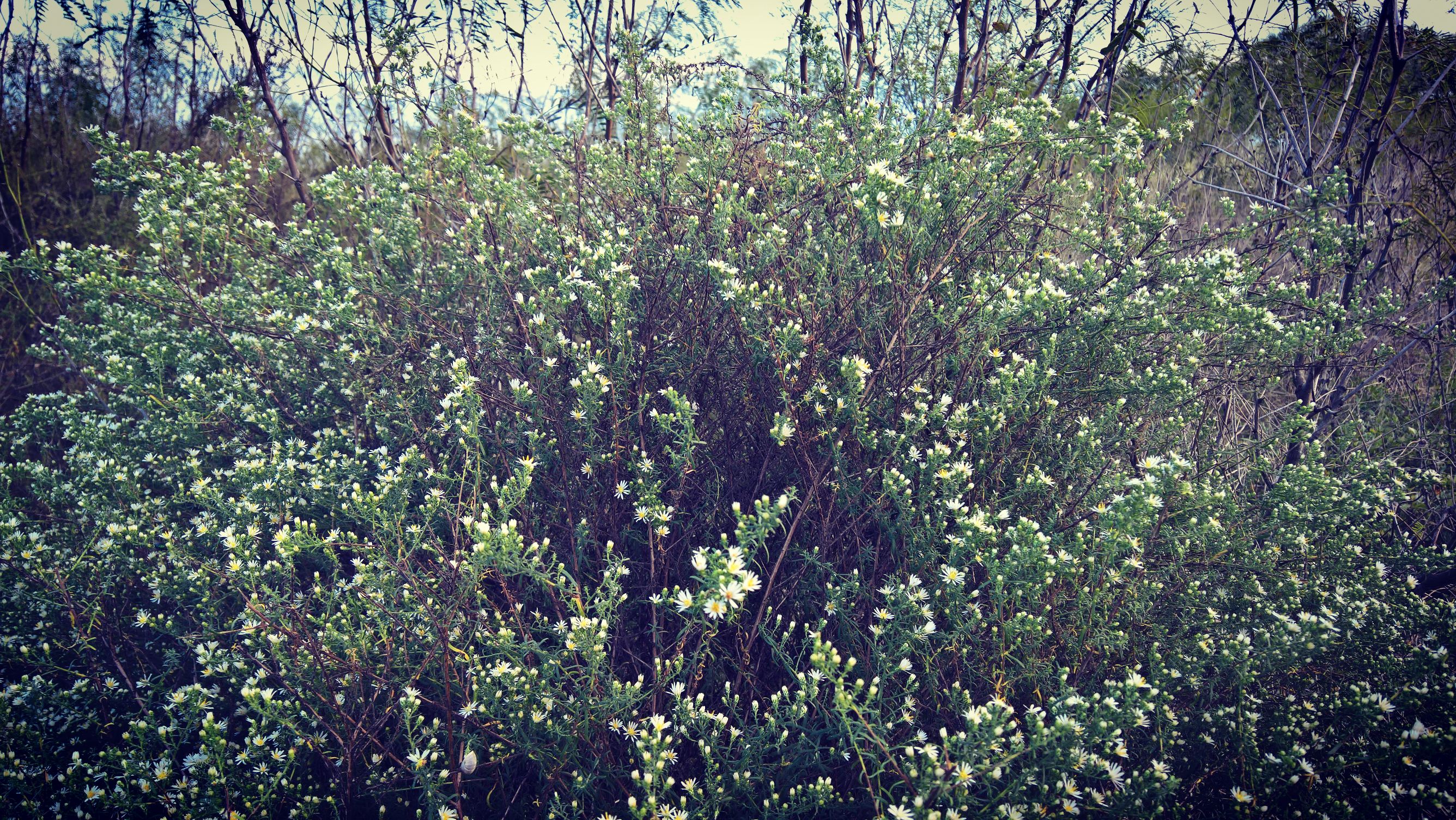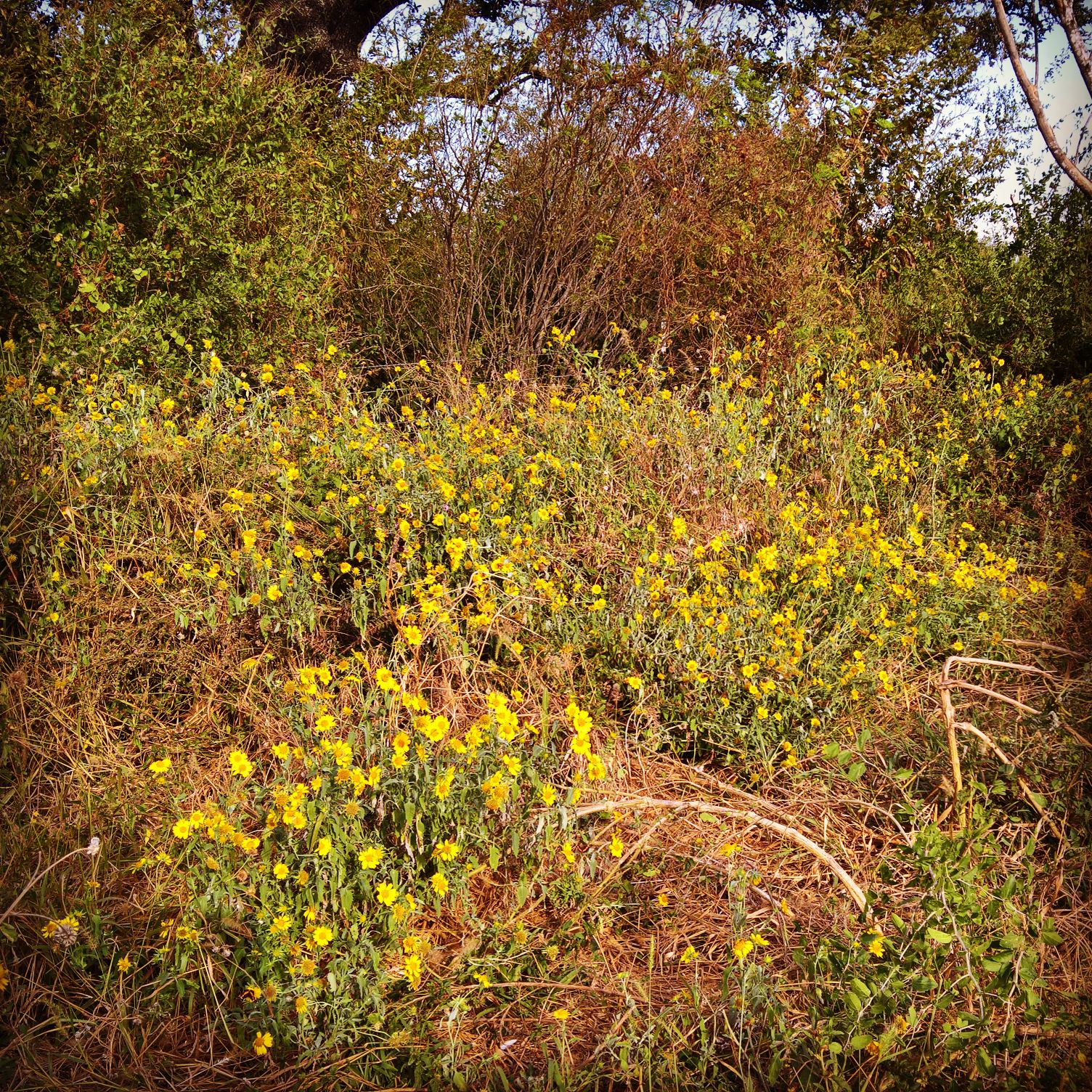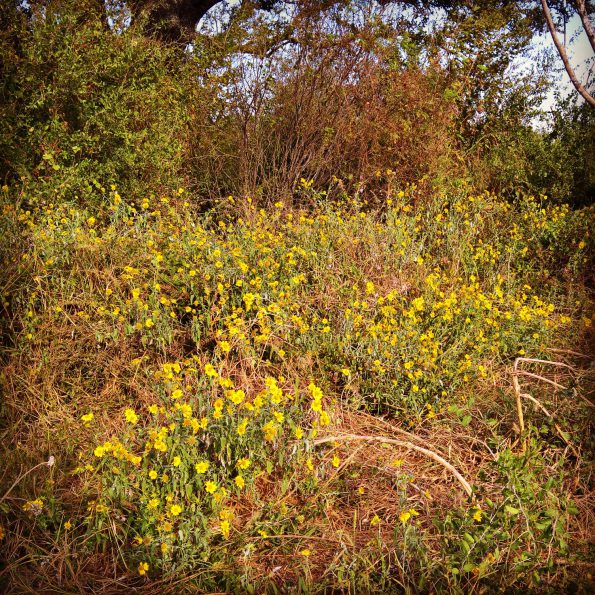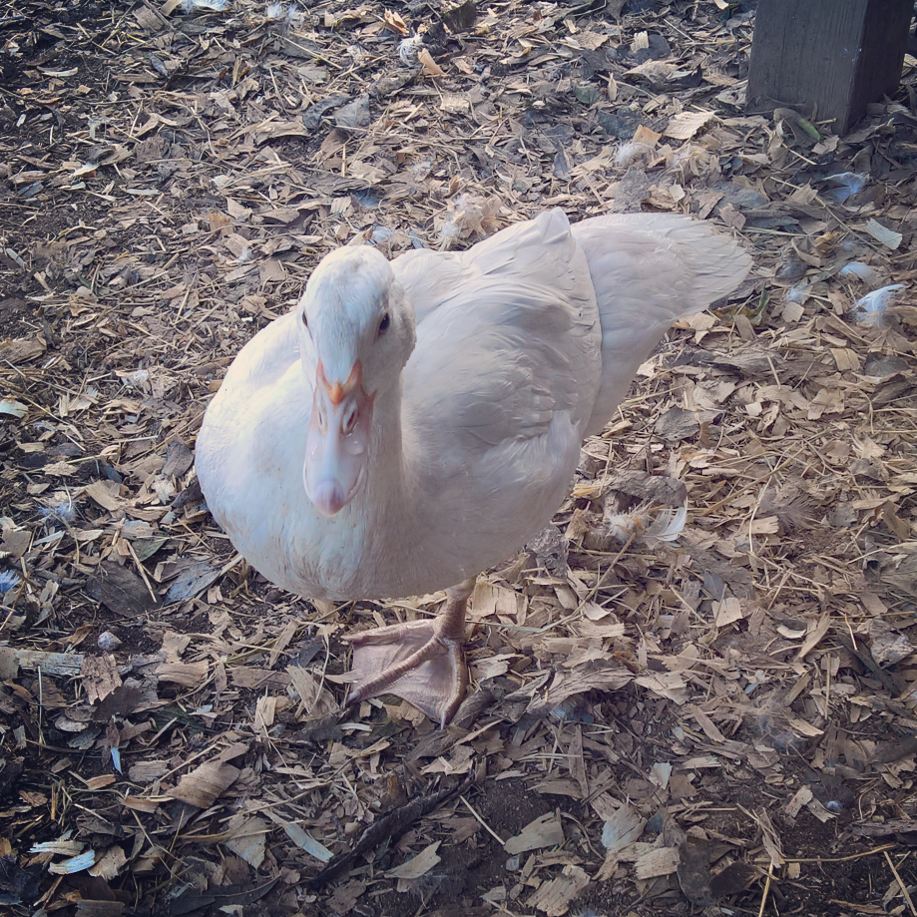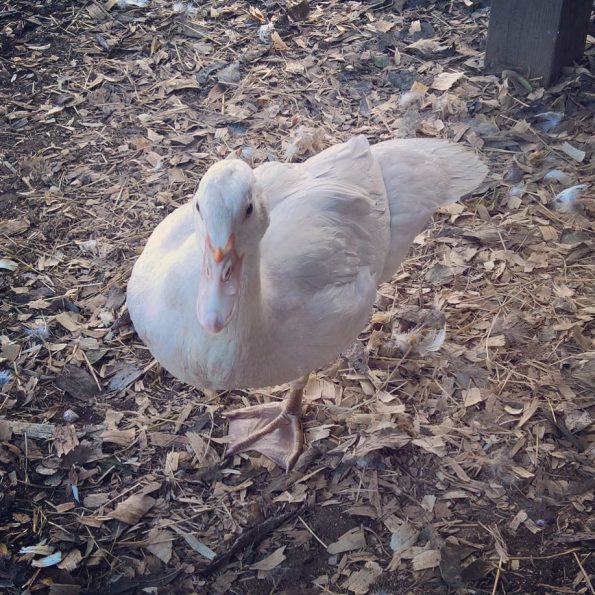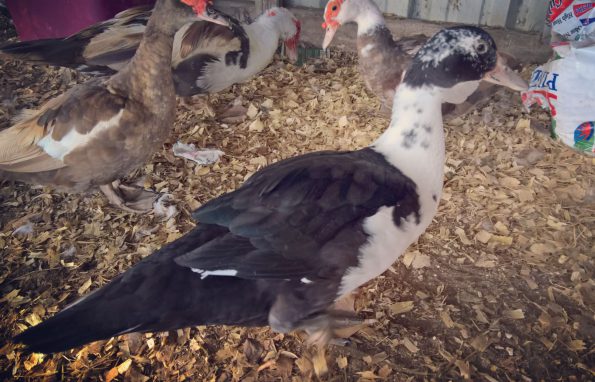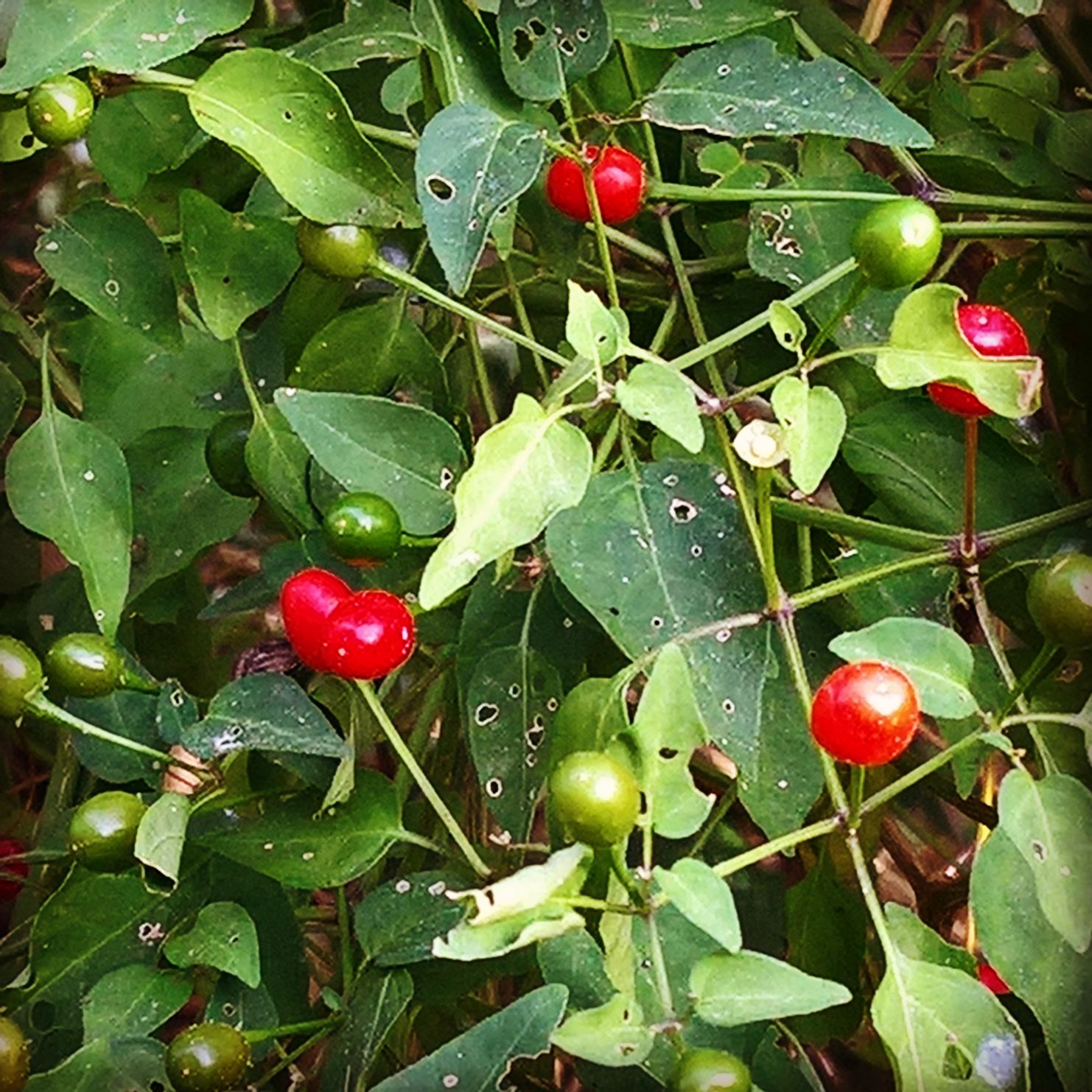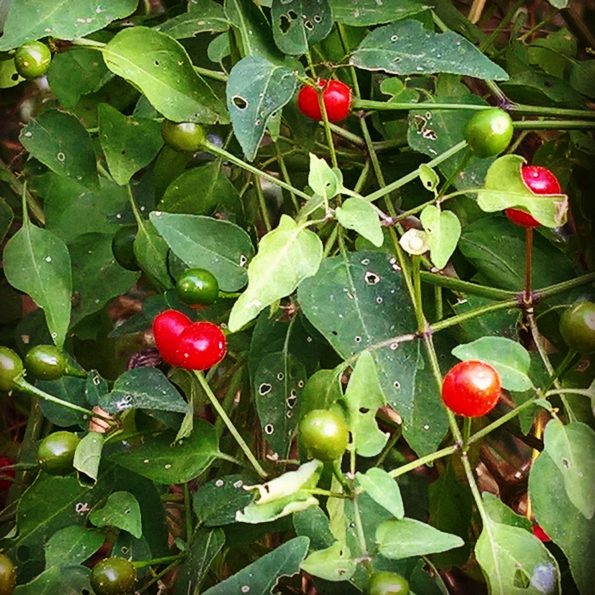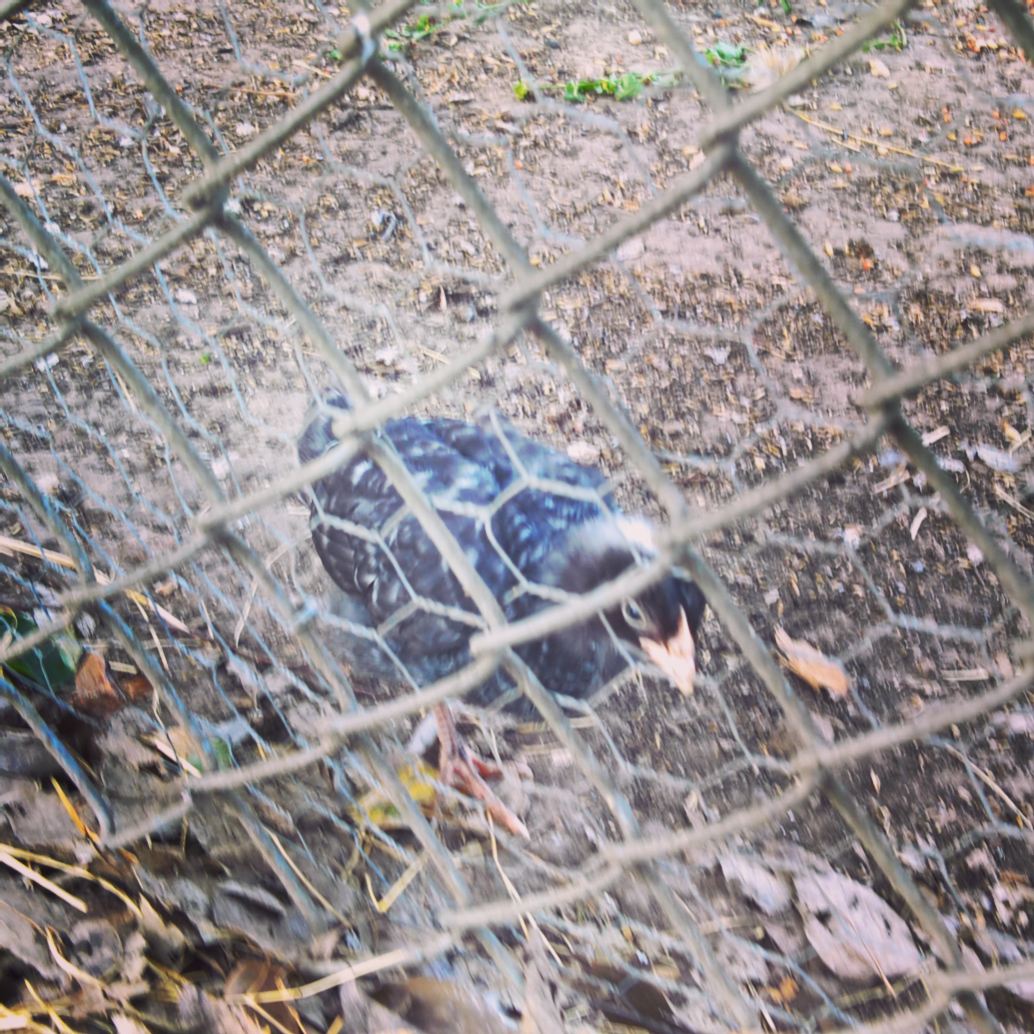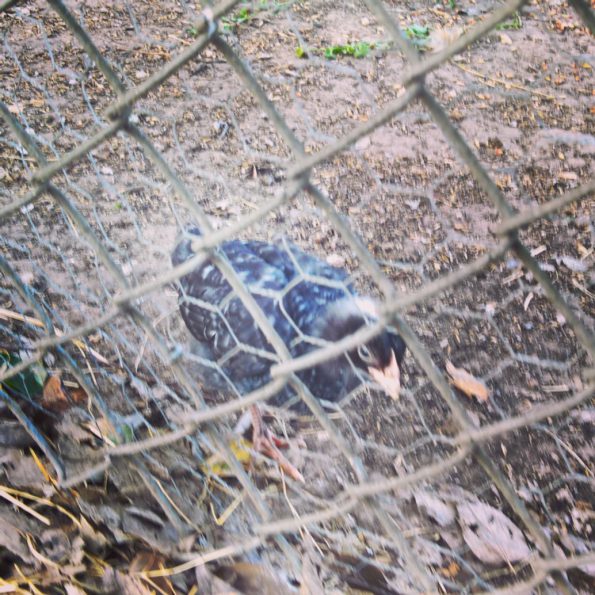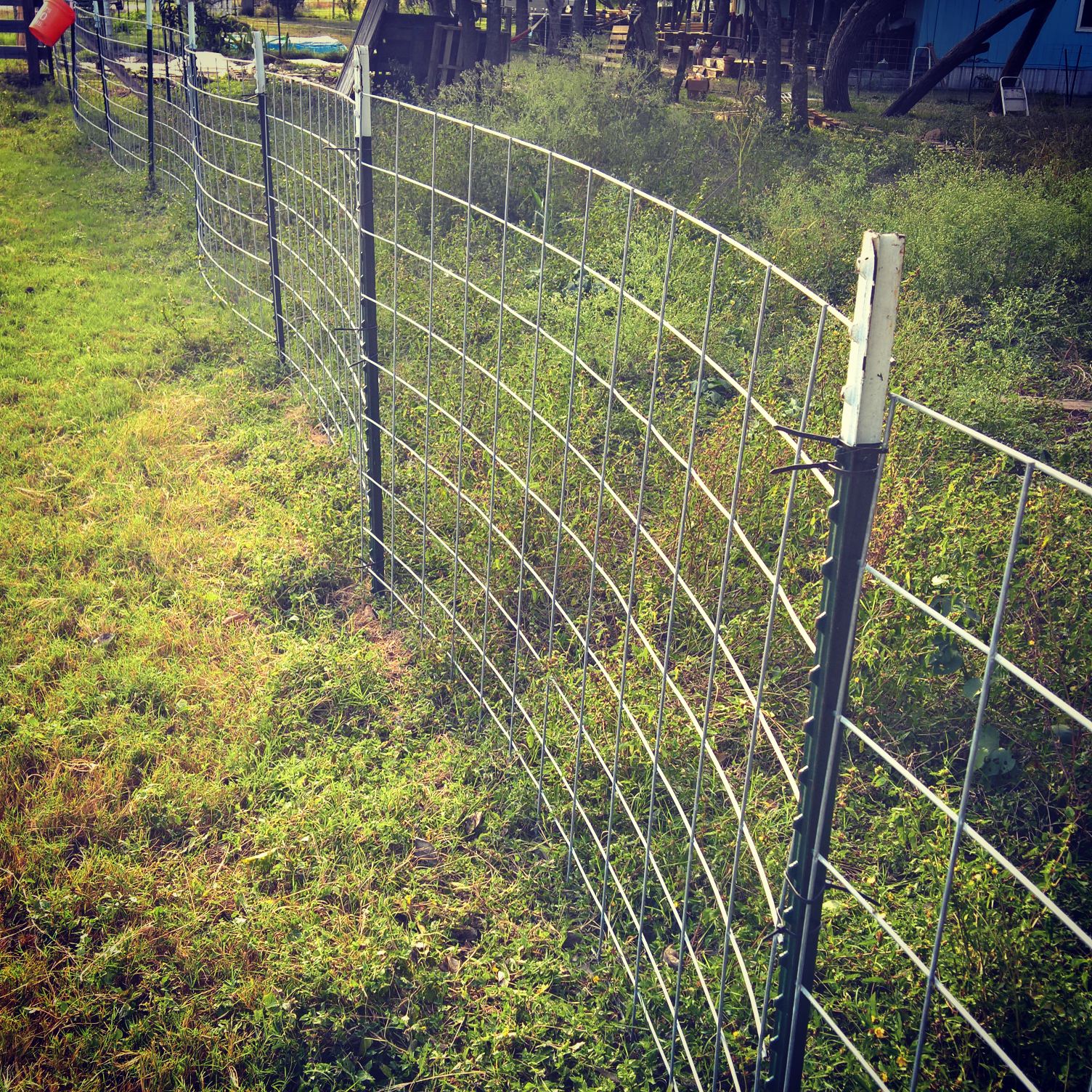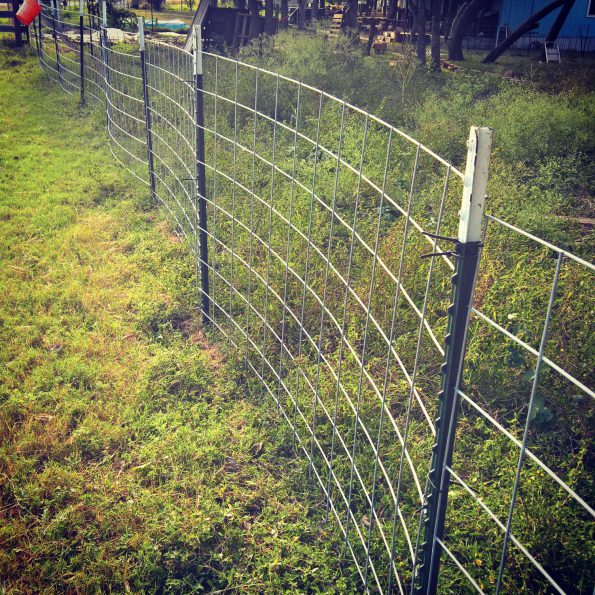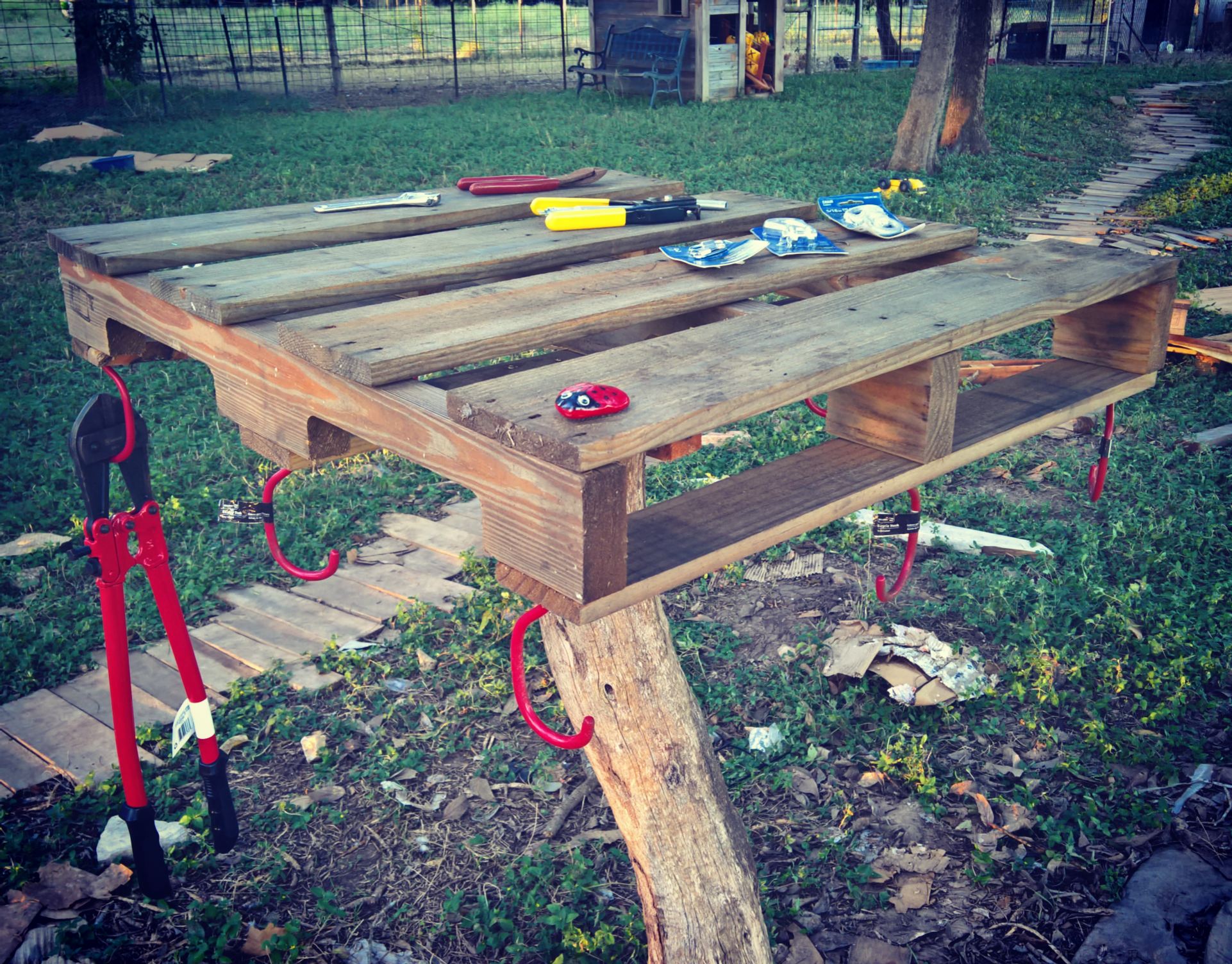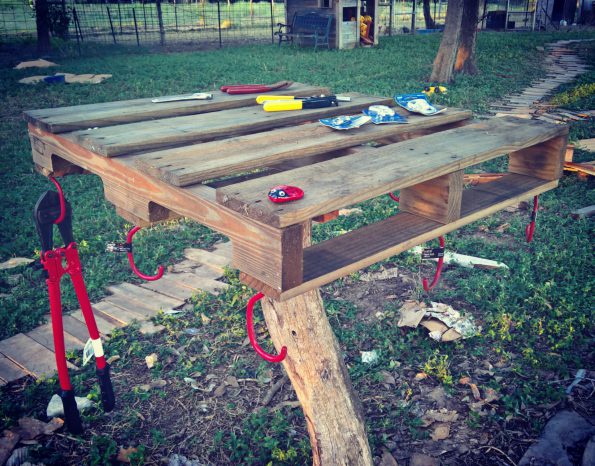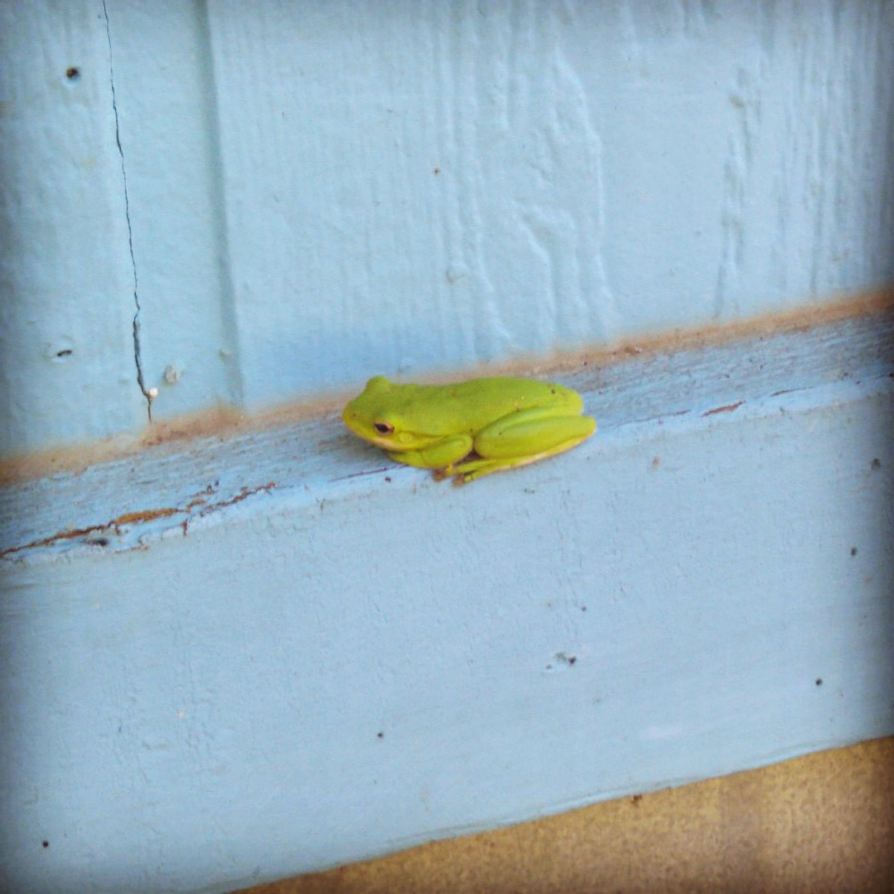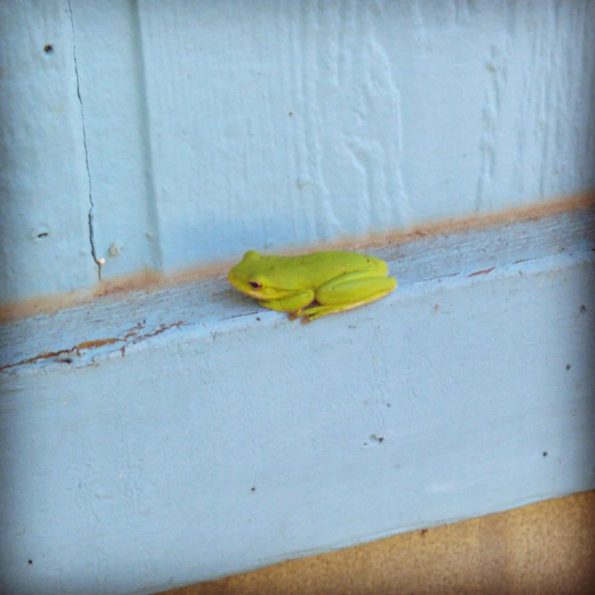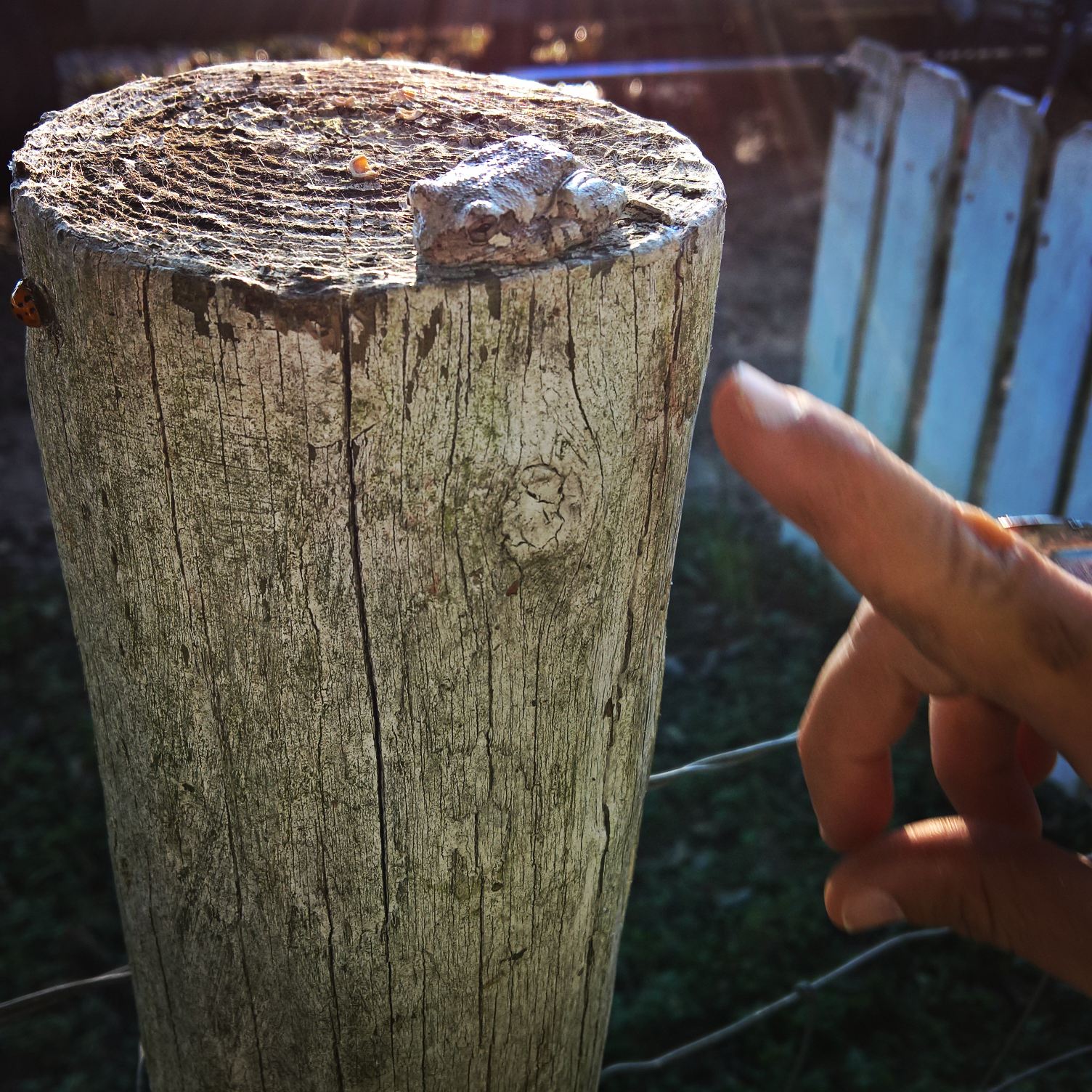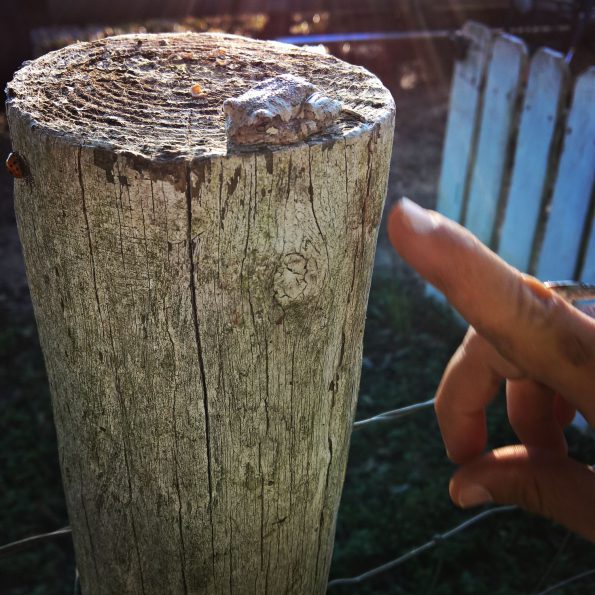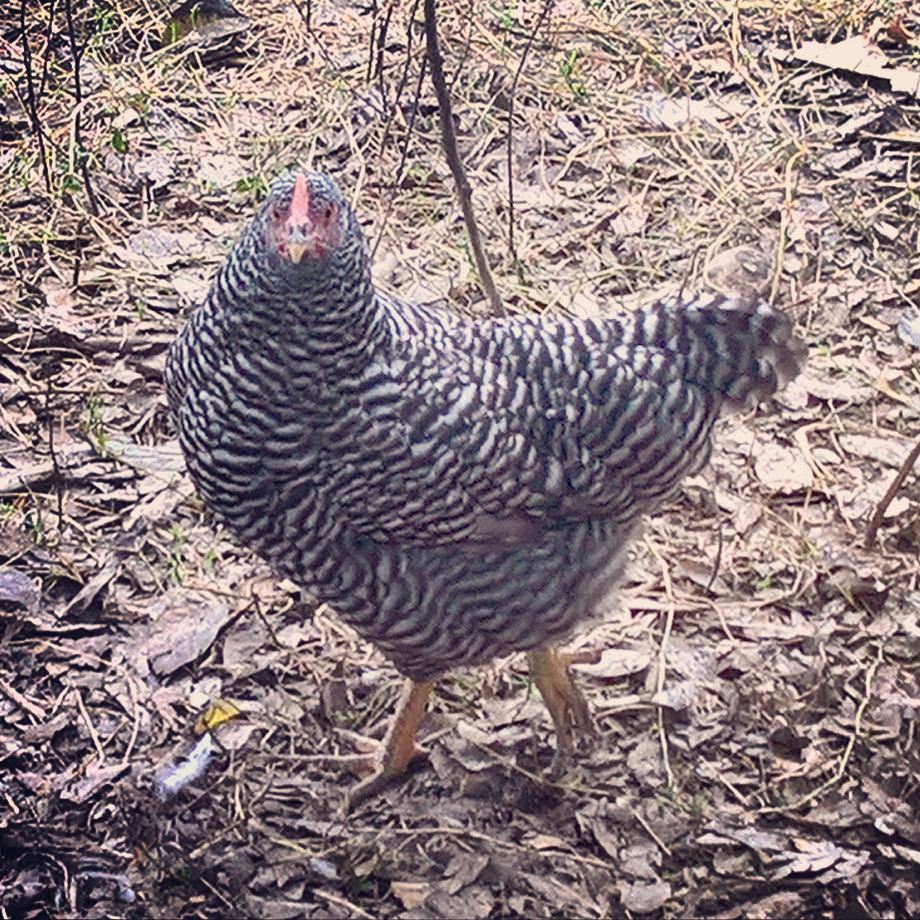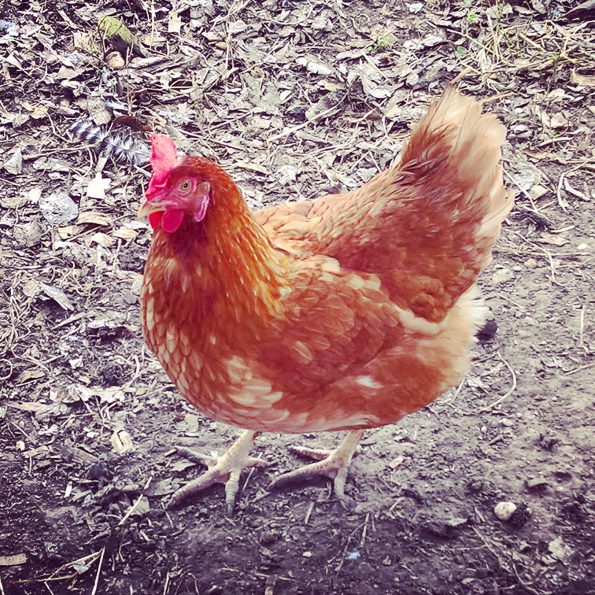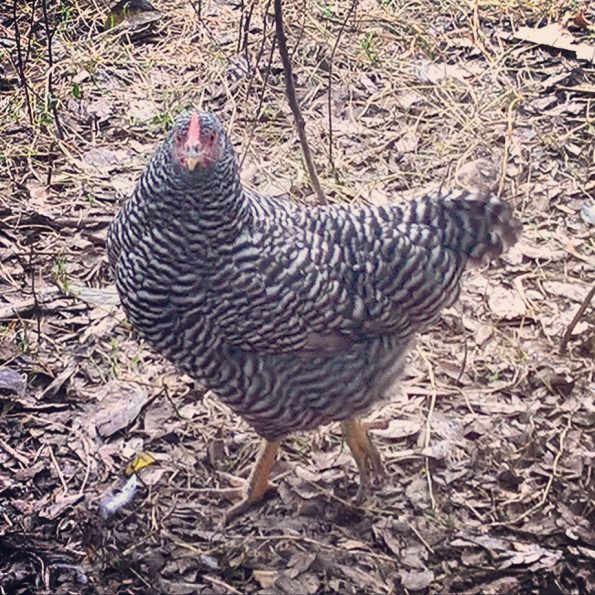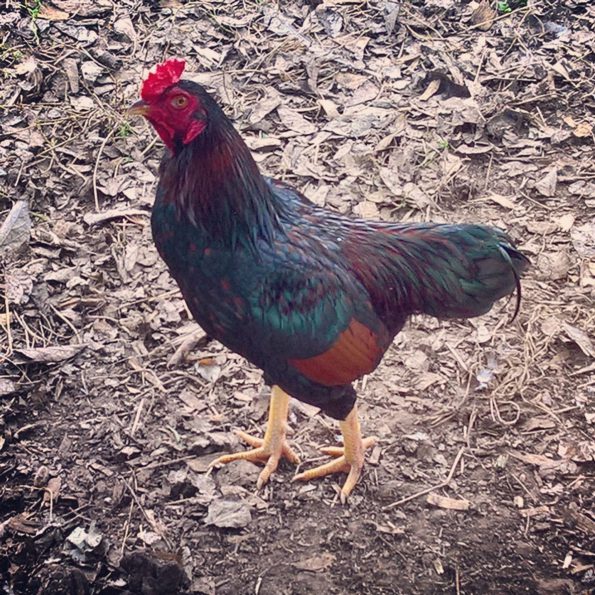Saw this on one of our walks the other night. It made Melissa think of that scene in Lord of the Rings where Aragorn tells Sam to get some Kingsfoil to help heal Frodo’s wounds. Not sure whether this would do the same, but it does look pretty. Much prettier live than in the photo, though.
Month: October 2016
Fall Flowers in the Meadow
Hatched Here
Here’s a couple of close-up shots of the two ducks that hatched here this summer (2016). The first is the lavender Muscovy, and we think she’s a female because of her relative size. She’s also the one with the gimpy leg.
Below is her salt-and-pepper brother, who is almost twice her size – although you really can’t tell that from these two pictures.
Chili Pequins
We went foraging the other day, and came across these cute little red berries. Not realizing what they were at first, Melissa picked one and tasted it…and immediately spit it out. They’re hot little suckers, and we have them growing wild all over the property.
In doing a little research into Chili Pequins, we learned a couple of things. First, the “original” Texas hot sauce was made from Chili Pequins and vinegar. Folks would pack the peppers into a bottle and add vinegar. They’d keep refilling the vinegar until the following fall, when new peppers would be available.
Second, we learned that they’re called bird peppers because birds love them. Seems that birds don’t process capsaicin the same way humans do, and so it doesn’t affect them the way it does us. Also, the Chili Pequin seeds need scarification – usually via a bird’s digestive tract – in order to germinate.
Chickens: The Next Generation
Thoughts on Fencing
We were blessed to find a property that was already fenced on all sides, and crossed-fenced in places. But it still needed some more “cordoned off” areas for our purposes. We considered a couple of options, and ultimately decided on “T-posts, cattle panels and zip-ties” as our immediate fencing of choice. We chose the cattle panels and zip-ties approach over more traditional methods for a couple of reasons.
First, it’s easy to do.
While 8-foot cattle panels are more expensive per foot than welded wire fencing, with the lengths we were dealing with, they weren’t prohibitively expensive. And they’re relatively easy to transport and get into place. So easy, in fact, that our kids (eight, seven, and four) helped with the fencing projects. The two older ones got the panels into place, Melissa pounded in a T-post, and they all helped with zip-tieing them to each other and the T-posts.
Second, it’s easy to undo.
If we ever decide that the fence needs to be shaped differently, or in a different location entirely, it’s fairly easy to undo. Just clip the zip-ties and dig up the T-posts. In other words, it’s an immediate solution – but it doesn’t have to be a long-term solution. On the other hand, if we decide that we hit the nail on the head in terms of where we want fencing, we can replace the cattle panels with welded wire – or keep the cattle panels, but use wire to hold the fence together (rather than zip-ties).
Repurposing a Pallet
Craigslist’s free section is a wonderful resource. We’ve found many interesting items there – including a place nearby that always has an ample supply of pallets of all shapes and sizes. Melissa decided to make one into a garden work bench. We had a dead tree in the garden, and rather than uproot the thing, she cut it to a comfortable height and mounted a pallet to the trunk. “C” hooks around the bottom edges make for easy hanging for tools, buckets, etc.
Little Green Frog
Frog on a Post
The Chickens
Shortly after we announced that we won the bid on our property, our friends, Michael and Sue Laprise, bought us six Red Sexlinks chicks as a housewarming present. Unfortunately, only two are left…life lessons on the farm. They started laying in June 2016 and are very reliable producers for us.
Not long after we moved onto the property, my parents brought one of our kids back from spending the night at “Mom-Mom and Pop-Pop’s” house…along with an assortment of laying hens, including the Barred Rock below.
As I mentioned, we’ve lost a number of chickens, and one of the countermeasures we took was to acquire a rooster (below). We found him through Craigslist, and he joined our flock in the summer of 2016. He’s a rather tiny rooster, but he knows his job and does it well.
